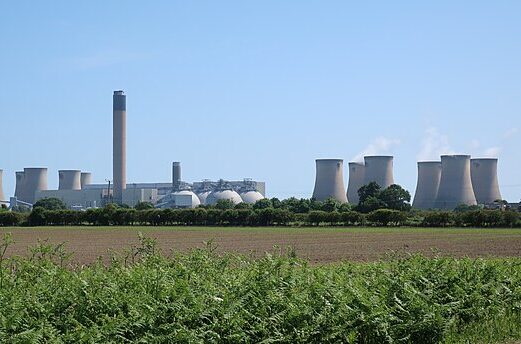
Drax, a major UK power company, has kept burning wood from ecologically sensitive areas despite receiving substantial green subsidies.
Documents obtained by Panorama reveal that Drax obtained timber from rare forests in Canada, even though it had previously claimed these areas were off-limits.
This comes at a crucial juncture, as the government deliberates over whether to grant the company further environmental subsidies, financed by energy consumers.
Drax, situated in North Yorkshire, has transitioned from a coal plant to burning wood pellets, generating approximately 5% of the UK’s electricity in 2023. Despite emitting roughly 12 million tonnes of carbon dioxide annually, these emissions are not accounted for under international rules, bolstering Drax’s renewable energy classification.
However, all 6.5 million tonnes of wood pellets consumed annually by Drax are sourced overseas, primarily from the US and Canada, where the company has faced scrutiny for its logging practices. Panorama’s investigations revealed that Drax acquired wood from “old-growth” forests in British Columbia, including areas designated as “priority deferral,” indicating their critical ecological value.
Despite Drax’s assurances of sustainability and legal compliance, evidence suggests otherwise. Forestry documents indicate that a significant portion of Drax’s timber originates from areas where over 25% of the forest is classified as old growth. Critics argue that sourcing wood from these irreplaceable ecosystems is inherently unsustainable.
Ecologist Michelle Connolly, from the British Columbia campaign group Conservation North, says making pellets from old forests can never be sustainable.
“Old-growth forests in British Columbia are almost gone because of 70 years of logging to feed sawmills and pulp mills, and Drax is helping push our remaining ones off the cliff, along with our native biodiversity,” she says.
In response to scrutiny, Drax acknowledged sourcing wood from old-growth forests but emphasised the majority of its material derived from sawdust, sawmill residues, and forestry residues. The company asserts ongoing efforts to review and adapt its sourcing practices in line with evolving standards and scientific understanding.
Nevertheless, Drax’s practices raise concerns about the integrity of its sustainability claims. Despite pledging not to source wood from restricted areas in a 2017 report, Drax’s current sourcing policy lacks explicit protections for old-growth or primary forests. The report said: “We do not take from protected forests, old growth or primary forest, sites that have been classified as having a high biodiversity value.” This discrepancy underscores the need for more robust oversight and accountability within the industry.
The debate over Drax’s subsidies adds another layer of complexity. While the company argues that emissions from burning wood are offset by new tree planting, critics question the efficacy of this approach, highlighting the time it takes for new forests to mature and doubts about their capacity to sequester equivalent carbon dioxide volumes.
Moreover, the potential extension of subsidies to Drax has drawn criticism from experts, who caution against perpetuating support for wood pellet burning beyond 2027. Concerns persist regarding the long-term environmental impact and efficacy of carbon capture technologies, which aim to mitigate emissions from wood burning.
Ultimately, the controversy surrounding Drax underscores broader challenges in balancing renewable energy ambitions with ecological conservation and emissions reduction goals. As policymakers navigate these complexities, transparency, accountability, and scientific rigor must guide decisions to ensure a sustainable and equitable energy future.
——————————————————————————
At Natural World Fund, we are passionate about stopping the decline in our wildlife.
The decline in our wildlife is shocking and frightening. Without much more support, many of the animals we know and love will continue in their decline towards extinction.
When you help to restore a patch of degraded land through rewilding to forests, meadows, or wetlands, you have a massive impact on the biodiversity at a local level. You give animals a home and food that they otherwise would not have had, and it has a positive snowball effect on the food chain.
We are convinced that this is much better for the UK than growing lots of fast-growing coniferous trees, solely to remove carbon, that don’t actually help our animals to thrive.
This is why we stand for restoring nature in the UK through responsible rewilding. For us, it is the right thing to do. Let’s do what’s right for nature!
Donate today at https://naturalworldfund.com/ and join in the solution!

